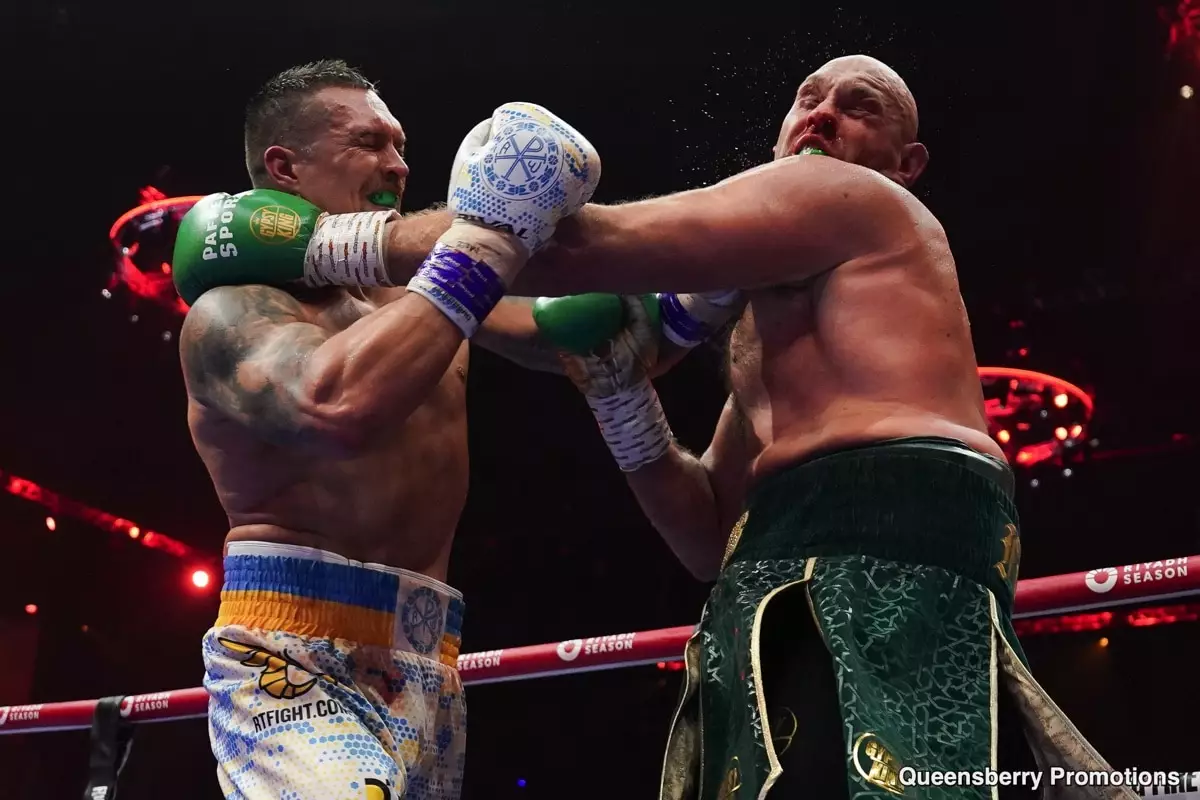The landscape of heavyweight boxing is on the brink of transformation as we anticipate the rematch between Oleksandr Usyk and Tyson Fury on December 21. The stakes are exceedingly high, and the implications of this fight extend far beyond the ring. With the backing of promoter Frank Warren, the focus turns not only to the immediate bout but also to what happens next for these two elite fighters.
Frank Warren, a veteran promoter in the boxing industry, has made it clear that he stands unwaveringly by Tyson Fury, should the unthinkable happen—Fury losing a second consecutive match to Usyk. In a recent press conference, Warren articulated his conviction that Fury is poised to reclaim his title and avoid defeat. His confidence is not unfounded; he asserts that even in defeat, Fury showcased resilience and skill during their first encounter, suggesting that he possesses the tools to overcome Usyk’s masterful boxing style.
Warren’s belief extends to the contractual arrangements, which indicate a potential trilogy—Usyk vs. Fury III—if Fury manages to secure a victory. This is pivotal not only for the sport but also for the legacy of these fighters. A trilogy bout would capture the imaginations of boxing fans and continue to draw significant media attention.
The narrative shifts dramatically should Fury suffer defeat a second time. Warren expresses a pragmatic approach, noting that both the anticipated match against Anthony Joshua and possible bouts with rising star Daniel Dubois remain on the table. The implication is clear: A loss for Fury would not signify the end of his career. Instead, it could usher him into a new chapter, including potentially lucrative fights that could still draw in audiences.
Notably, the fight between Fury and Joshua captures the attention of boxing enthusiasts. Even if the initial fervor surrounding this matchup has diminished, it remains an enticing prospect. The allure of an all-British clash is too significant to ignore, and as Warren suggests, the financial backing—particularly interest from Saudi investors—would likely keep this fight viable.
Beyond the physical toll that boxing takes, it is essential to acknowledge the mental aspect of the sport, especially for someone as complex as Tyson Fury. Warren touches upon Fury’s ongoing struggles with mental health, revealing the underlying motivation that drives the fighter. For Fury, continuing to box is more than a career choice; it’s a necessary endeavor for his mental well-being. This reality adds layers to his potential future, affecting not only his decision to continue fighting but also his engagement with the sport at large.
Should Fury choose to retire in the event of another loss, Warren’s willingness to support his decision speaks to the close relationship they share. Yet, the internal drive within Fury to remain relevant in the boxing world might be stronger than the urge to walk away, regardless of the outcome in December.
As the heavyweight division braces for this titanic showdown, we await the ramifications that will ripple through the sport based on the outcome. While fighters like Usyk and Fury represent the pinnacle of the heavyweight category, the possibilities for emerging talent such as Dubois highlight an evolving landscape. The synergy between established boxers and rising stars emphasizes the exciting nature of boxing today, where new rivalries can emerge from well-established names.
As we countdown to December 21, all eyes will undoubtedly be glued to Riyadh. The rematch is not just about titles or glory; it encompasses questions of legacy, resilience, and the enduring appeal of boxing. We can only hope that the bout lives up to its potential, delivering the drama and excitement that fans crave while shaping the future of a sport replete with rich history and fierce competition.

